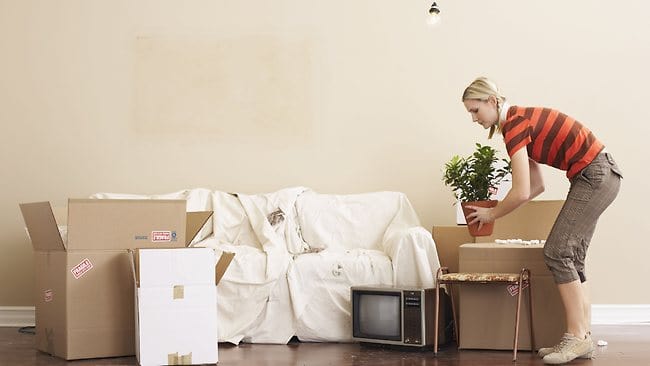Getting Rental Bond Back NSW
Moving houses is often stressful enough without the additional stress of possibly losing your rental bond.
Since we offer bond cleaning services, we receive calls from confused tenants on a daily basis who are nearing the end of their rental term but don’t know what they need to do to get their rental deposit back.
This isn’t surprising since NSW laws surrounding tenancy agreements are often vague and open to interpretation when it comes to the responsibility of the tenant.
Hence, the reason I’ve decided to write this article which will hopefully put things into perspective for you.
Tenants vs Landlords – What Are You Liable For?
According to the Residential Tenancies Act 2010 (NSW), tenants must –
- Remove all goods from the property (furniture, personal items etc)
- Return the property in the same condition as when they moved in minus wear and tear
- Leave the premises in a reasonably clean condition (again referring back to the condition at the start of the tenancy agreement)
- The tenant is liable for any damage to the property which is not considered normal wear and tear
- Return all keys associated with the property to the agent or landlord (the tenant needs to continue paying rent until this happens)
The rules seem fairly straightforward at first glance, however, things can get fairly murky once put into practice.
For example, a landlord or agents interpretation of “reasonably clean” could be completely different from the tenant and this is where things can quickly turn ugly when it comes to the time to getting a bond refund.
In our experience, the best way is to determine the level of cleanliness required is to refer back to the state the property was in at the start of the tenancy agreement while factoring in fair wear and tear which is not the clients responsibility.
What is Considered Wear & Tear
According to Fair Trading NSW, wear and tear is deterioration which occurs in the premises over time which occurs with the use of the premises even after it receives reasonable care and maintenance.
These are examples of things the tenant is NOT liable for –
- Traffic Marks on the Carpet (this is a big one which many people are confused about)
- furniture indentations on carpet or flooring
- Scuffed up floor boards (through normal use)
- Faded or chipped paintwork
- Worn benchtop or cabinets
- Any marks or stains caused by structural damage eg. cabinet stains caused by plumbing defects
- Faded Blinds and carpets caused by sun exposure
- Loose joints on doors and joinery
What isn’t Wear & Tear?
Any damage which is caused directly or indirectly by the tenant through negligence or misuse is not considered wear and tear.
In terms of getting a bond refund, these are examples of things which the tenant IS liable for –
- Any Stains on carpets which wasn’t caused by normal foot traffic such as red wine spills, burn marks, pet stains etc
- Badly scratched floor boards eg. caused by dragging sharp metal object on floor
- Paintwork damaged by stickers or decals
- Holes in Walls (even small ones left by hanging pictures must be repaired by the tenant before keys are handed back)
- Rust coloured stains left on balcony or floor due to pot plants
- Floor boards or cabinets which were water damaged by an overflowing sink (which were not due to faulty plumbing)
Additional Tips for Getting Your Bond Back
Do I Need to Steam My Carpets?
This is another one which a lot of tenants get confused about, our advice is to check your tenancy agreement.
The legislation changed back in 2010 and it is no longer mandatory for tenants to have their carpets professionally cleaned. However, it may have been written as part of the condition for them to be able to rent the property in the first place if the tenant has pets.
As stated above, your responsibility is to return the property to the condition it was in prior to moving in.
Do I Need to Hire Professional Cleaners to clean my property?
Again, this is another area where the law is very vague so you will need to check your individual tenancy agreement.
I would say the majority of agent agreements will allow the tenants to clean the premises themselves, however, you also risk losing part or all of your bond if it’s not done properly (they will call a professional if they feel the property isn’t clean enough).
In our experience, landlords and agents are usually more inclined to release a bond if the tenant provides evidence such as an invoice as this shows the property has been cleaned.
Hopefully the information has cleared up any misconceptions you’ve had regarding getting your bond back.
At Simpo Cleaning, we offer a satisfaction guarantee for all our services and will go back and re-clean any spots which doesn’t pass the final inspection free of charge.
- 10 Essential Cleaning Tools For Every Home - September 14, 2021
- How to Clean Your Kitchen - September 12, 2021
- What Does High Pressure Cleaning Cost? - September 5, 2021

